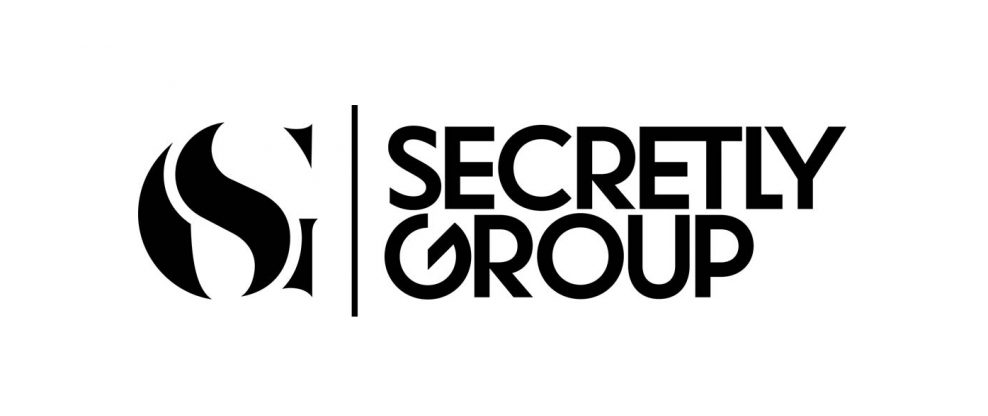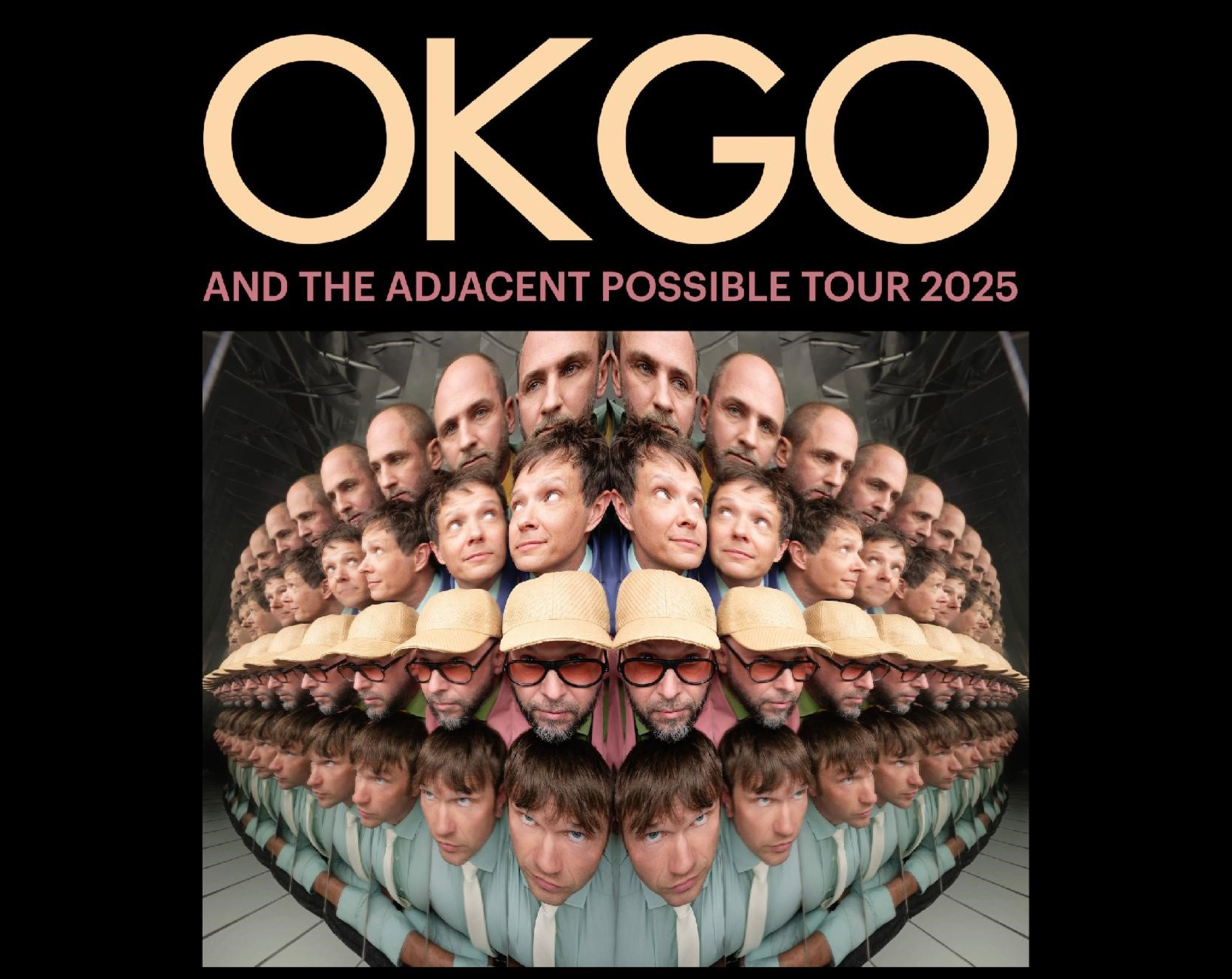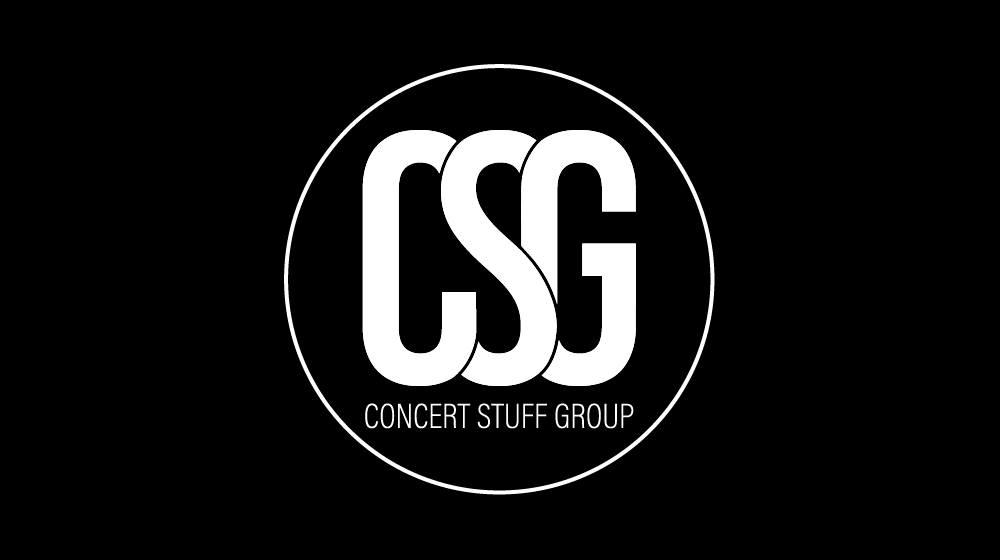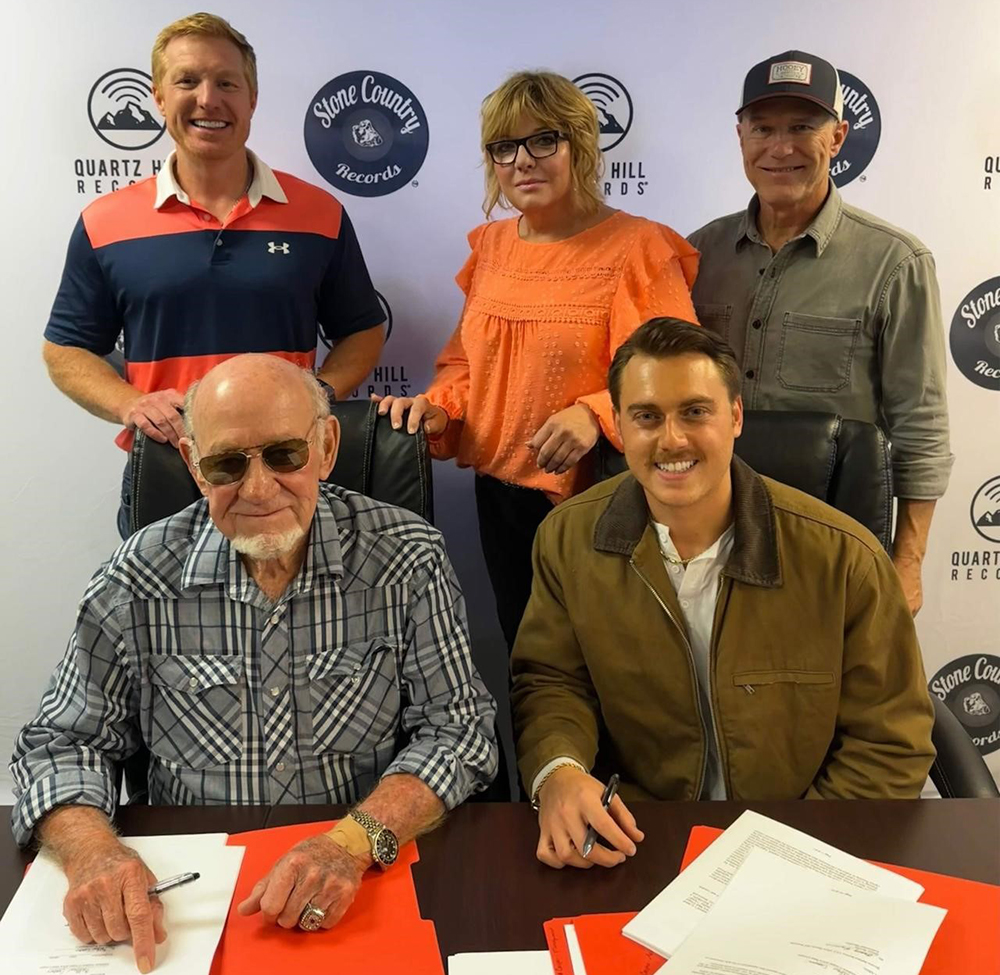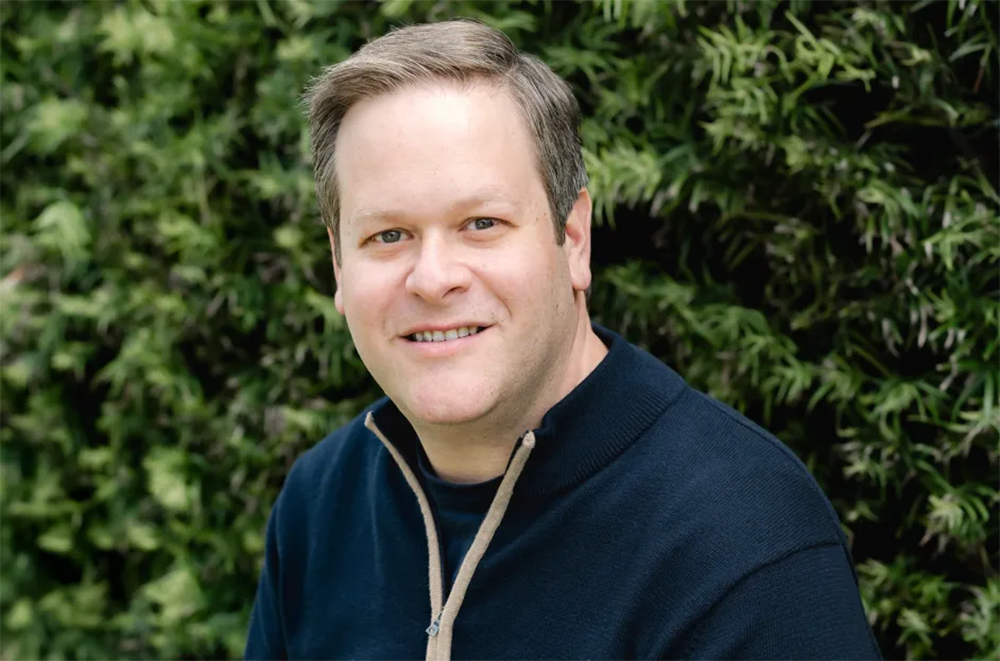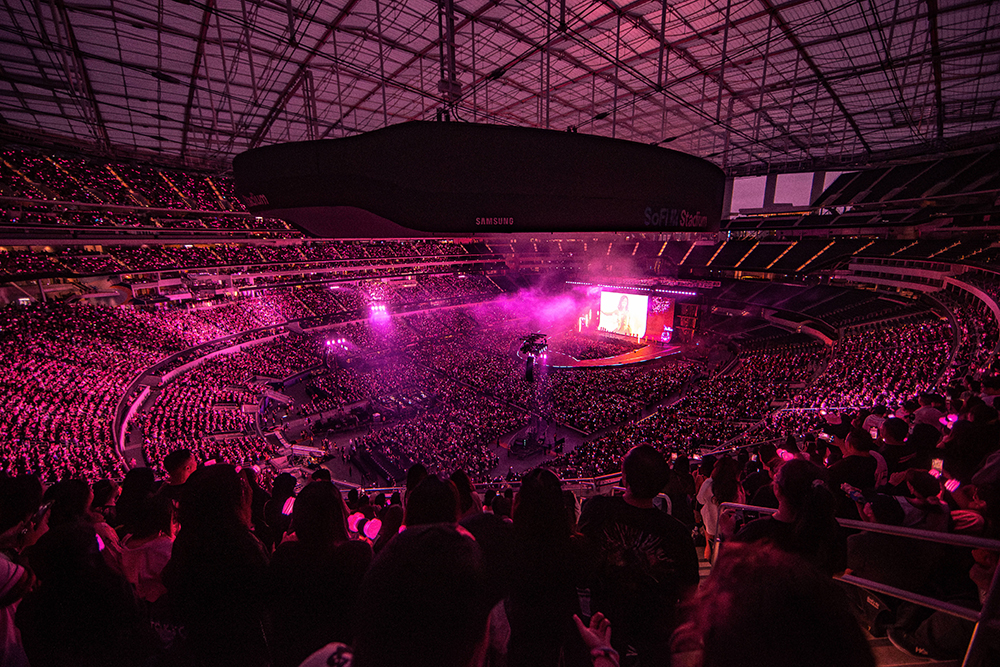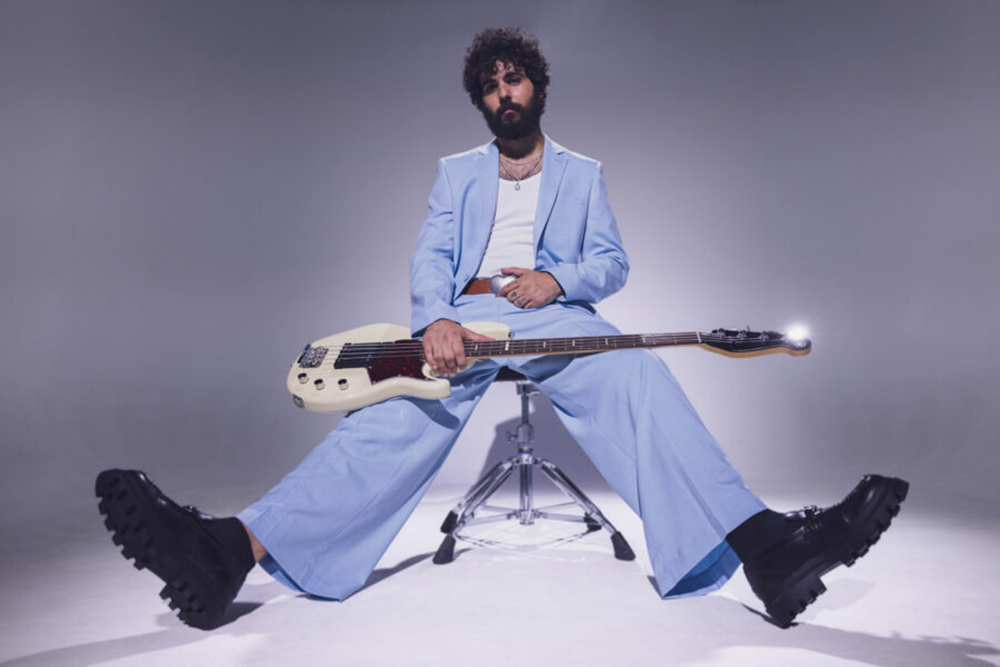Danny Ross sat down to chat with Robby Morris, the creative director of indie powerhouse the Secretly Group, which is responsible for the releases of Bon Iver, Angel Olsen, The War On Drugs and others about why image is so important in the streaming age.
______________________________
Guest post by Danny Ross. This article originally appeared on Forbes
A picture is worth a thousand notes.
Just look at a band’s album art, music video, Instagram feed or live show, and it will become clear that visuals have taken on a more pronounced role in the era of streaming music. So I was excited to learn more from Robby Morris, who oversees releases by Bon Iver, Angel Olsen and The War On Drugs as Creative Director at Secretly Group. Here’s our chat:
Danny Ross: Why are visuals so important in music right now?
Robby Morris: If you hear a band on Spotify, it comes with an image sitting right alongside it. So it’s more and more important for that image to be the best representation of your artistry. It’s the first thing listeners will see. There are no rules to what makes a good cover. You don’t want to put out a bright, flashy image just to catch somebody’s eye. But there has to be a certain immediacy of voice — not an immediacy of aesthetics.
Ross: When does that visual element carry over into socials like Instagram?
Morris: After you stream a song, then you go to social media to see how the band expresses themselves. That’s the second layer of discovery for both A&R people and for fans. How you interact with your fans is important, you don’t want to force it. You don’t need to be oversharing — some artists aren’t good at it! If you look at Ryley Walker, his socials are just a pure expression of who he is. It’s brash and hilarious, that’s just him expressing himself.
Ross: So what is a Creative Director exactly?
Morris: Creative Directors, in a traditional sense, exist at ad agencies working on visual elements of a campaign. That’s a big part of what I do. The music is obviously the most important thing, but secondarily is the visuals. It’s my job to help bridge the gap between the music from an A&R level, to how the band wants to represent themselves visually. And to understand how that informs marketing. How do they want to express that music in a live setting? Through packaging, press photos, music videos, Instagram and online representation? It’s my job to elevate that.
One artist I jumped right into was serpentwithfeet. We worked closely on a music video with director Andrew Thomas Huang. Then Red Bull Music Academy Festival New York help put all these ideas on stage at the Reliquary at the High Line Hotel. So I got to help him build his world, put it on camera and on stage. And we were lucky enough to run a cover feature with Fader,which is an amazing coup for a debut artist.
YOU MAY ALSO LIKE
Ross: In the streaming age, are indie labels still looking for the next cool band?
Morris: Always! That’s what keeps us going. It’s fantastic working for great bands over decades, but none of these labels could function if they weren’t bringing in bands for the next twenty years. We’re looking for an artist that has a voice and can express themselves in an independent spirit. We’re not looking for something cookie-cutter, or previous examples of bands that were successful. It’s largely about finding something that’s new that we believe the rest of the world should be paying attention to. There’s a lot more music now because of the ease in which artists can make it and put it up. But I don’t think that makes it a harder playing field — there’s just more to discover.
Ross: Since streaming has helped to blur genre lines, many indie acts are now working with pop artists and songwriters. Do you view that as a positive change?
Morris: If you have the opportunity to work in pop, then you should do it. Working with an outside writer, or getting into a fancy studio is an expansion of your toolkit, not necessarily a resignation from lack of good ideas. Indie and pop tend to be separated because there are different motivations, but sometimes those things intersect. We can make great art that’s also Grammy-worthy.
Ross: You work at The Secretly Group, which is an umbrella company for several indie record labels. How does that work?
Morris: Secretly includes Dead Oceans, Jagjaguwar and Secretly Canadian. The three labels all have distinct voices and individuals behind them. And their rosters reflect their taste artistically and musically. The umbrella model allows fluidity and access. The labels have such a like-minded artist-friendly approach, that it pushes community to develop. You could take a huge band like Bon Iver to help a smaller band like Shame. You can have Julien Baker open for Belle and Sebastian, and then start a new band with Phoebe Bridgers called boygenius.
Ross: And how did you first get your start in the industry?
Morris: My entree into music was WNYU, the student radio station. It was great getting weird records from experimental labels, and learning what music meant as a business and community. It was 20 kids who were offered guest list spots at shows, and got into clubs under 21. The fact that you could be a college kid obsessed with music, set up a drum kid and a microphone in a classroom and have a band perform for you was incredible. I got to set up interviews and sessions with Holly Golightly and Genesis P-Orridge from Throbbing Gristle and Psychic TV.
Ross: Speaking of which, how do you feel about the state of music in New York City right now?
Morris: I’m optimistic. There were a lot of people who were reticent about getting involved with music because the industry was collapsing. But now that things are turning around, people are excited and ready to start labels and bands. A lot of venues in New York were closing a few years ago, but new amazing ones are opening like Elsewhere.
Ross: And when did you make the transition into A&R?
Morris: Matador Records brought me in as an A&R scout, but I was reticent. You read about A&R guys up all night at clubs, flying around the world. That’s not really my personality. I’m not that guy making the rounds at the shows, I prefer to stand in the back and enjoy the band. But I think that’s maybe what they were looking for. It was this total dream job. Matador never had A&Rs before in their history but they decided to bring in someone who had ears on the ground, could go out to shows more often and expand their scope. So I was there for eight years, helping to work bands that were on the label for decades like Yo La Tengo while also helping to sign someone like Julien Baker.
Ross: How did you come across Julien Baker?
Morris: That was a quick one! I heard some of her music on a blog, got in touch with her manager and went down to Philly to see her play. Her show was just so incredible. You hear about the “pin-drop” shows — there were no glasses at the bar clinking, no one coughed. She held the room. I went to shake her hand after the show, and this cloud of people started gathering around us. These people just had their lives changed and they wanted to meet her and take a photo. She was so warm and gracious. That’s an amazing formula to go back to your bosses and say there’s something special going on here.
Ross: And you were also instrumental in breaking out Perfume Genius. How did that come about?
Morris: Mike Hadreas recorded his first record on his computer, lost the hard drives and only had the mp3s. We mastered those mp3s and that was the first album called Learning. We fell in love with this record — which was this deep, wrenching piano-based music about trauma and addiction, but it was also kind of funny. He was growing as a performer, writing and directing incredible videos. By the time of his last record, he knew exactly what he wanted. Mike met with Blake Mills and said, “This is the guy.”
Ross: Wrapping up, what advice would you give to up-and-coming musicians?
Morris: On a practical level, I don’t think there are any tricks. I don’t know if sending a demo works anymore — maybe it does. Make sure you put your email on your Bandcamp so that you can be found. Artists also have to be the kind of people an office can work with to do this magnification and projecting. Maybe have a savvy friend help to make sure all your visuals look neat on a platform. Having some momentum helps, but it shouldn’t be a reason to sign a band. Sometimes with synchs or breakout singles, it’s about a YouTube algorithm getting picked, getting lucky on a playlist, or an editor hearing your song out of the blue. There’s not a science to it, and that’s a good thing.
The age-old tenants still hold true. If artists are truly self-possessed, play as much as possible and put their music out into the world, it’s a sure-fire way of getting noticed. At the end of the day, the music has to be something that can inspire and change lives.
Danny Ross is a pop songwriter and producer in Brooklyn. He formed the band Babetown with his wife, Jess. They met on the subway and covered Ryan Adams in the style of Taylor Swift.

